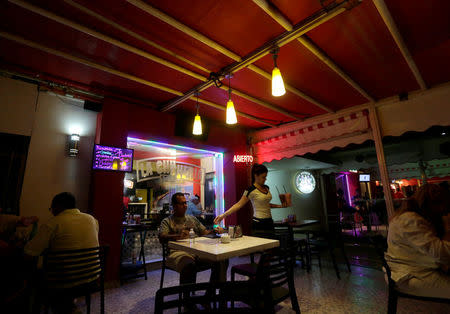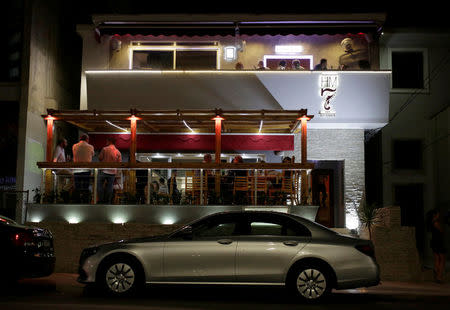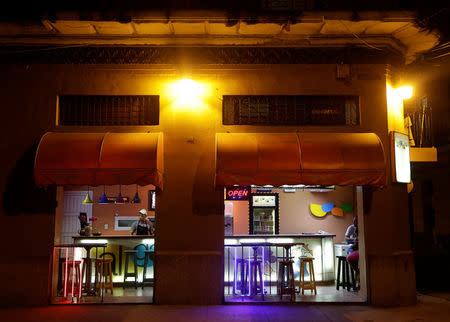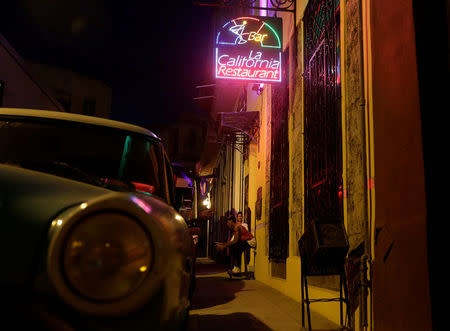Havana confirms has suspended new licenses for private restaurants
HAVANA (Reuters) - Havana's city government temporarily suspended issuing licenses for new private restaurants from September onwards while it ensured existing ones were operating legally, a senior official said on Wednesday, confirming an earlier Reuters report. The tougher line could hurt Havana's food offerings during the upcoming tourism season and is a fresh sign that Cuba's Communist-run government is hesitant to further open the economy up to private business. "This measure is temporary and will remain in place while we audit the services being currently delivered," senior city official Isabel Hamze said in a video published by state-run website Cubadebate. "We recognize the importance of these businesses for the city and the government wants them to be successful but within the mark of legality," she said. Private restaurants have flourished since President Raul Castro loosened restrictions on small businesses six years ago, especially in the capital. There are more than 500 private restaurants in Havana and more than 1,700 across the country. Hamze said the city government met with 129 restaurants owners to discuss regulatory violations such as buying goods on the black market, fronting for discos, allowing prostitution on their premises and evading taxes. Other possible violations were contracting entertainment outside official channels, staying open after 3 a.m., disturbing neighbors, dubious sources of capital and illegal purchases of buildings, she said, confirming what restaurant owners had told Reuters in a report published on Monday. "We explained to them that after these dialogues, we would carry out inspections," she said. Many eateries say an excessive tax burden and heavy-handed regulation like a cap on seating make it hard for them to abide by the law and remain afloat. Their fiercest complaint is that they must buy all their supplies at retail stores and markets, often at huge mark-ups, unlike state-run competitors which have access to wholesale markets and no seating restrictions. Paladar owners have said they are bracing for inspections. Clampdowns on small businesses are not new in Cuba as the government encourages private businesses but also tries to keep them from becoming too successful and causing wide disparities in wealth. According to Cubadebate, the non-state sector - including both the private sector and cooperatives - employs 27 percent of workers now, compared with 16.2 percent in 2010. However it still only accounts for 12 percent of gross domestic product, demonstrating it could provide work and an income to a part of the population but would not become a growth motor for the Caribbean country, Cubadebate wrote. (Reporting by Sarah Marsh; Editing by Kim Coghill)




